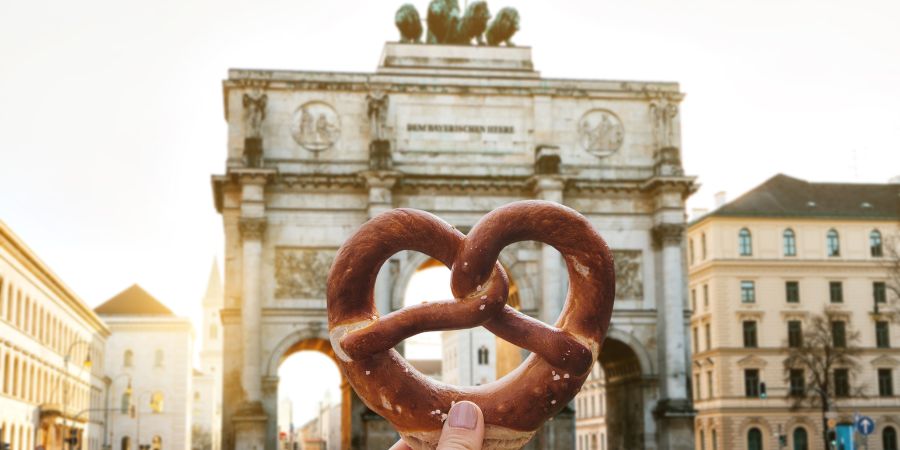$798$5,195

Germany, a country in Central Europe, is known for its rich history, diverse landscapes, and vibrant cultural scene. From the bustling cities with their mix of historic and modern architecture to the tranquil countryside with its forests, rivers, and mountain ranges, Germany offers a varied and enriching experience for all travelers.
Geography and Climate
Germany is bordered by nine countries and has coasts on the North and Baltic Seas. Its landscape includes the Bavarian Alps in the south, the forests and river valleys of the central region, and the coastal plains in the north. The country experiences a temperate seasonal climate, with cold winters and warm summers, though weather can vary based on region.
Cultural Overview
German culture has been shaped over centuries by major intellectual and popular currents in Europe. It is known for its contributions to philosophy, literature, music, and art. Germany is also famous for its beer and wine culture, traditional festivals, and regional customs.
Key Destinations
- Berlin – The capital city, known for its rich history, vibrant arts scene, and landmarks like the Brandenburg Gate and the remnants of the Berlin Wall.
- Munich – The capital of Bavaria, famous for its beautiful architecture, the annual Oktoberfest, and proximity to the Alps.
- Hamburg – A major port city known for its impressive harbor, the Elbphilharmonie concert hall, and the Reeperbahn nightlife district.
- Cologne – Renowned for its stunning cathedral, vibrant arts scene, and historic Old Town.
- Frankfurt – A global financial hub, known for its futuristic skyline, the historic Römerberg, and cultural festivals.
- The Black Forest – A large, forested mountain range known for its natural beauty, traditional villages, and hiking trails.
History and Heritage
Germany’s history is diverse, from its medieval beginnings to its role in both World Wars and its split and reunification during the Cold War era. This rich history can be explored in various historical sites, museums, and memorials across the country.
Outdoor Activities and Natural Beauty
The German landscape offers a wide range of outdoor activities. The Bavarian Alps are perfect for skiing, hiking, and mountaineering, while the Black Forest and Harz Mountains offer excellent hiking and cycling trails. The country’s numerous lakes and rivers, like Lake Constance and the Rhine River, provide opportunities for water sports and leisurely cruises.
German Cuisine
German cuisine varies by region but generally features hearty dishes with meats, bread, potatoes, and vegetables. Famous German dishes include bratwurst, schnitzel, pretzels, and sauerkraut. Germany is also known for its beer, with a variety of styles and numerous breweries throughout the country.
Arts and Music
Germany has a rich musical heritage, being the birthplace of composers like Bach, Beethoven, and Wagner. The country has numerous opera houses and concert halls. Art lovers can enjoy a wealth of museums and galleries, particularly in cultural hubs like Berlin and Dresden.
Best Time to Visit
The best time to visit Germany is in the late spring (May to June) and early autumn (September to October). During these months, the weather is mild, and there are fewer tourists. Winter can be a great time to visit for Christmas markets and winter sports in the Alps, while summer offers vibrant festivals and pleasant outdoor weather.
Festivals and Events
Germany hosts a variety of festivals throughout the year. The most famous is Oktoberfest in Munich, but other notable events include the Berlin Film Festival, Carnival celebrations in Cologne and Düsseldorf, and Christmas markets across the country in December.
Cultural Etiquette
Germans are known for their punctuality and directness. A handshake is a common greeting, and titles are often used in formal situations. Tipping is customary in restaurants and for services.
Safety
Germany is generally a safe country for tourists, with low crime rates. Standard safety precautions are advised in cities and tourist areas.
Transportation
Germany boasts an excellent public transportation system, including a comprehensive network of trains, buses, and trams. The Autobahn (highway) network is renowned for its sections without speed limits, though drivers are expected to drive responsibly.
Accommodation
Germany offers a range of accommodations, from luxury hotels in major cities to cozy guesthouses in the countryside, as well as budget-friendly hostels. Historic castles and manors often offer unique lodging experiences.
Shopping and Handicrafts
Germany offers a variety of shopping experiences, from luxury boutiques in cities like Munich and Berlin to traditional markets and craft shops selling items like cuckoo clocks, beer steins, and handmade ornaments.
Language
German is the official language. English is widely spoken, particularly in tourist areas and among younger people.
Health and Wellness
Germany is known for its wellness culture, with numerous spa towns like Baden-Baden and health resorts offering therapeutic treatments.
Tips for Travelers
- Cash is still preferred in many places, so it’s good to have some on hand.
- Sunday is a rest day, with most shops closed.
- Recycle and respect environmental laws – Germany is very eco-conscious.
- Public transportation is reliable and a great way to travel between and within cities.